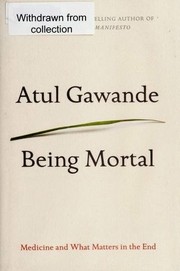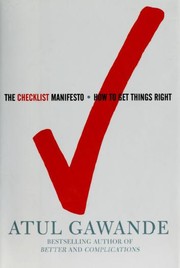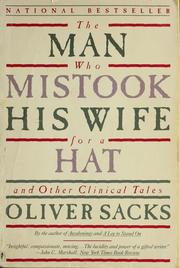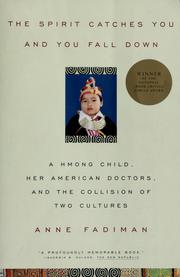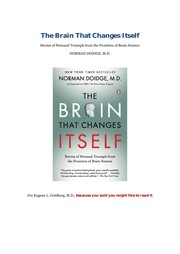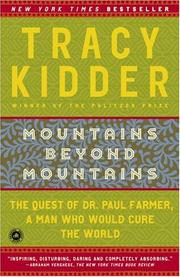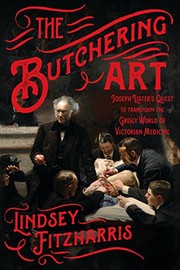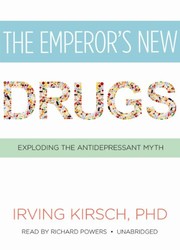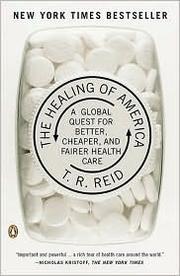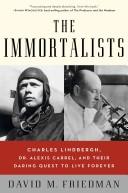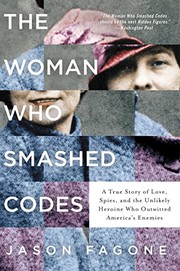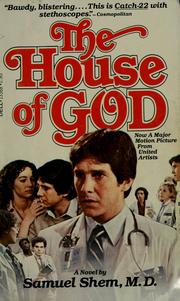Are you looking for a captivating book on medicine to expand your knowledge or provide insight into the world of healthcare? Look no further! We have compiled a list of the 20 best medicine books that will take you on a fascinating journey through the history, practices, and breakthroughs in the field of medicine. Whether you’re a medical professional, a student, or simply interested in the subject, these books offer engaging narratives, thought-provoking insights, and valuable information. From memoirs of healthcare professionals to groundbreaking discoveries, these books cover a wide range of topics that will satisfy your curiosity and leave you inspired. Let’s delve into the world of medicine through these captivating reads!
Contents
- 1 20 Best Medicine Books
- 2 The Gene: An Intimate History
- 3 Being Mortal: Medicine and What Matters in the End
- 4 The Emperor of All Maladies: A Biography of Cancer
- 5 When Breath Becomes Air
- 6 The Checklist Manifesto: How to Get Things Right
- 7 The Immortal Life of Henrietta Lacks
- 8 The Man Who Mistook His Wife for a Hat
- 9 The Hot Zone: The Terrifying True Story of the Origins of the Ebola Virus
- 10 The Spirit Catches You and You Fall Down
- 11 The Brain that Changes Itself: Stories of Personal Triumph from the Frontiers of Brain Science
- 12 Mountains Beyond Mountains: The Quest of Dr. Paul Farmer, a Man Who Would Cure the World
- 13 The Birth of the Pill: How Four Crusaders Reinvented Sex and Launched a Revolution
- 14 The Man Who Knew Infinity: A Life of the Genius Ramanujan
- 15 The Butchering Art: Joseph Lister’s Quest to Transform the Grisly World of Victorian Medicine
- 16 The Great Influenza: The Story of the Deadliest Pandemic in History
- 17 The Emperor’s New Drugs: Exploding the Antidepressant Myth
- 18 The Healing of America: A Global Quest for Better, Cheaper, and Fairer Health Care
- 19 The Immortalists: Charles Lindbergh, Dr. Alexis Carrel, and Their Daring Quest to Live Forever
- 20 The Woman Who Smashed Codes: A True Story of Love, Spies, and the Unlikely Heroine Who Outwitted America’s Enemies
- 21 The House of God
- 22 Final Thoughts on Best Medicine Books
- 23
20 Best Medicine Books
The Gene: An Intimate History
by Siddhartha Mukherjee
The Gene: An Intimate History by Siddhartha Mukherjee is a captivating exploration of the fascinating world of genetics. In this compelling book about medicine, Mukherjee delves into the history, science, and ethics of genetic research, offering a comprehensive look at the profound impact of genes on our lives. The author skillfully weaves together personal stories, scientific breakthroughs, and ethical dilemmas, creating a rich tapestry that brings the complex world of genetics to life.
From the discovery of the gene to the latest advancements in genetic engineering, Mukherjee takes readers on a thought-provoking journey through the intricacies of our genetic code. With his engaging narrative style and in-depth research, he provides readers with a deeper understanding of the role genes play in shaping our identities, behaviors, and destinies.
Whether you’re a science enthusiast or simply curious about the inner workings of the human body, The Gene: An Intimate History is a must-read medicine book that will leave you with a newfound appreciation for the power and potential of genetics.
Being Mortal: Medicine and What Matters in the End
by Atul Gawande
Being Mortal: Medicine and What Matters in the End, written by Atul Gawande, is a thought-provoking exploration of the intersection between healthcare, aging, and mortality. In this compelling book on medicine, Gawande challenges the traditional medical approach to aging and terminal illness, urging readers to consider what truly matters to patients as they near the end of their lives.
Through poignant stories and insightful research, the author delves into the complexities of end-of-life care, offering a fresh perspective on how the medical community can better serve the needs and desires of elderly and terminally ill patients. Gawande’s exploration of the balance between medical intervention and quality of life makes this medicine book a must-read for healthcare professionals, caregivers, and anyone facing the difficult decisions that come with aging and illness.
Being Mortal is a powerful and compassionate book about medicine that challenges readers to rethink the way we approach the end of life, offering valuable insights into how we can provide more meaningful and respectful care for those facing mortality.
The Emperor of All Maladies: A Biography of Cancer
by Siddhartha Mukherjee
The Emperor of All Maladies: A Biography of Cancer by Siddhartha Mukherjee is a groundbreaking, Pulitzer Prize-winning book about the history and impact of cancer. Through meticulous research and compelling storytelling, Mukherjee takes readers on a journey through the centuries, exploring the origins of the disease, the evolution of treatments, and the tireless efforts of scientists and doctors to understand and combat cancer.
This medicine book offers a comprehensive and engrossing look at the complex nature of cancer, delving into its biological, social, and political implications. Mukherjee’s writing is both informative and deeply human, as he shares the stories of patients, researchers, and medical pioneers who have shaped our understanding of this formidable adversary.
With its blend of scientific insight and narrative power, The Emperor of All Maladies is a must-read for anyone interested in the history of medicine, the challenges of disease, and the ongoing battle against cancer. Mukherjee’s work is a testament to the resilience of the human spirit and the relentless pursuit of knowledge in the face of a formidable foe.
When Breath Becomes Air
by Paul Kalanithi
When Breath Becomes Air by Paul Kalanithi is a profound memoir that delves into the intersection of literature and neurosurgery. Kalanithi, a talented neurosurgeon, was diagnosed with terminal lung cancer at the peak of his career. In this poignant and introspective book on medicine, he candidly reflects on his journey from being a doctor to becoming a patient, grappling with questions of mortality and the meaning of life.
With eloquent prose and deep introspection, Kalanithi shares his experiences of navigating the world of medicine from both sides of the hospital bed. His unique perspective as a physician-turned-patient offers valuable insights into the human experience, the complexities of illness, and the pursuit of a meaningful existence in the face of mortality.
Throughout the book about medicine, Kalanithi weaves together his passion for literature, his dedication to medicine, and his personal battle with illness, creating a moving and thought-provoking narrative that resonates with readers on a profound level. When Breath Becomes Air is a compelling and deeply affecting medicine book that challenges readers to contemplate the fragility of life and the pursuit of purpose.
The Checklist Manifesto: How to Get Things Right
by Atul Gawande
The Checklist Manifesto by Atul Gawande is a compelling book on medicine that explores the power of checklists in improving performance and reducing errors in complex fields like surgery, aviation, and construction. Drawing on real-life examples and research, Gawande argues that even the most skilled professionals can benefit from using simple checklists to ensure they don’t overlook important steps or details. He shares fascinating stories of how checklists have transformed the practice of medicine, demonstrating their ability to save lives and improve outcomes. Gawande’s engaging writing style and persuasive arguments make this book about medicine a must-read for anyone interested in improving processes and reducing errors in high-stakes environments. Whether you’re a healthcare professional, a project manager, or simply someone interested in the psychology of decision-making, The Checklist Manifesto offers valuable insights into the power of a seemingly simple tool.
The Immortal Life of Henrietta Lacks
by Rebecca Skloot
The Immortal Life of Henrietta Lacks by Rebecca Skloot is a captivating non-fiction book that delves into the incredible story of Henrietta Lacks, whose cells were unknowingly taken from her in 1951 and have since become one of the most important tools in medicine. Skloot masterfully weaves together the history of Henrietta’s cells, known as HeLa cells, with the story of her family and the ethical issues surrounding medical research and consent.
This compelling book about medicine takes readers on a journey through the world of scientific discovery, exploring the impact of Henrietta’s cells on medical breakthroughs and the lives of her descendants. Skloot’s meticulous research and vivid storytelling make this book a thought-provoking and emotional read, shedding light on the intersection of race, ethics, and the advancement of medicine.
The Immortal Life of Henrietta Lacks is a must-read for anyone interested in the history of medical research and the profound impact of one woman’s cells on the field of medicine.
The Man Who Mistook His Wife for a Hat
by Oliver Sacks
The Man Who Mistook His Wife for a Hat is a fascinating and thought-provoking book about medicine by Oliver Sacks. In this collection of clinical tales, Sacks, a renowned neurologist, delves into the intricate workings of the human brain and the profound impact of neurological disorders on individuals’ lives. Through a series of captivating and poignant case studies, Sacks explores a diverse range of neurological conditions, from amnesia and aphasia to Tourette’s syndrome and autism.
Each case study is a compelling narrative that illuminates the complexities of the human mind and the resilience of the human spirit. Sacks’ insightful observations and compassionate approach to his patients make for a compelling and enlightening read. The Man Who Mistook His Wife for a Hat offers a unique and profound insight into the mysteries of the brain and the profound ways in which neurological disorders can shape and alter our perceptions of the world. It is a must-read for anyone interested in the intricate workings of the human mind and the profound impact of neurological conditions. This book about medicine will leave readers with a newfound appreciation for the resilience of the human spirit and the mysteries of the brain.
The Hot Zone: The Terrifying True Story of the Origins of the Ebola Virus
by Richard Preston
The Hot Zone is a gripping book about medicine that delves into the terrifying origins of the Ebola virus. Written by Richard Preston, this non-fiction thriller takes readers on a heart-pounding journey through the discovery of Ebola and its deadly impact on humanity. The book provides a detailed account of the virus’s emergence in Africa and its potential to spread globally, causing widespread fear and panic.
Preston’s masterful storytelling and in-depth research paint a vivid and chilling picture of the Ebola virus, shedding light on the efforts of scientists and doctors to contain and understand this deadly medicine book. The Hot Zone is a captivating and informative read for anyone interested in infectious diseases, public health, or the intersection of science and human survival.
With its vivid descriptions and compelling narrative, The Hot Zone offers a riveting exploration of the Ebola virus and its impact on the world, making it a must-read for those fascinated by real-life medical mysteries and the race to combat deadly diseases.
The Spirit Catches You and You Fall Down
by Anne Fadiman
The Spirit Catches You and You Fall Down by Anne Fadiman is a captivating book about medicine that delves into the cultural clash between Western medicine and Hmong beliefs. The book follows the story of a Hmong child diagnosed with epilepsy and the challenges her family faces when trying to navigate the American healthcare system. Fadiman skillfully weaves together the personal narratives of the family, the medical professionals, and the cultural and linguistic barriers that exacerbate the situation. Through this poignant and thought-provoking narrative, Fadiman explores the complexities of cross-cultural healthcare and the impact it has on patients and their families. The book not only sheds light on the challenges of providing culturally competent care, but also raises important questions about the nature of illness and healing, making it a must-read for anyone interested in the intersection of culture and medicine.
The Brain that Changes Itself: Stories of Personal Triumph from the Frontiers of Brain Science
by Norman Doidge
The Brain that Changes Itself: Stories of Personal Triumph from the Frontiers of Brain Science by Norman Doidge is a fascinating book about neuroplasticity, the brain’s ability to rewire and adapt itself. Doidge presents a collection of real-life stories of individuals who have overcome various neurological challenges through innovative treatments and therapies. From stroke victims learning to walk again to individuals overcoming learning disabilities, the book showcases the remarkable resilience and adaptability of the human brain.
Through engaging storytelling and in-depth research, Doidge explores the groundbreaking discoveries in the field of neuroplasticity and how they are revolutionizing our understanding of the brain. The book provides a hopeful message for those facing neurological difficulties, demonstrating that the brain has the potential to change and heal itself, even in the face of seemingly insurmountable challenges. Whether you’re interested in neuroscience, psychology, or simply want to be inspired by stories of personal triumph, The Brain that Changes Itself is a must-read for anyone curious about the incredible power of the human mind.
Mountains Beyond Mountains: The Quest of Dr. Paul Farmer, a Man Who Would Cure the World
by Tracy Kidder
Mountains Beyond Mountains: The Quest of Dr. Paul Farmer, a Man Who Would Cure the World by Tracy Kidder is an inspiring book about medicine that explores the remarkable life and work of Dr. Paul Farmer. Through vivid storytelling, Kidder takes readers on a journey that spans the globe, from the impoverished villages of Haiti to the halls of Harvard Medical School.
The book delves into Farmer’s relentless dedication to providing high-quality healthcare to some of the world’s most underserved populations, challenging conventional notions of what is possible in the field of global health. Kidder paints a vivid picture of Farmer’s unyielding commitment to social justice and his unwavering belief in the power of compassion and empathy in medicine.
Mountains Beyond Mountains is a captivating and thought-provoking read that offers readers a glimpse into the life of a truly extraordinary individual who has dedicated his life to making the world a better place through medicine. It’s a must-read for anyone interested in global health, social justice, and the power of one person to make a difference.
The Birth of the Pill: How Four Crusaders Reinvented Sex and Launched a Revolution
by Jonathan Eig
The Birth of the Pill: How Four Crusaders Reinvented Sex and Launched a Revolution by Jonathan Eig is a captivating book about medicine that traces the remarkable story of the development of the birth control pill. Eig takes readers on a journey through the lives of the four individuals who were instrumental in creating this revolutionary medicine book: activist Margaret Sanger, biologist Gregory Pincus, philanthropist Katharine McCormick, and chemist Carl Djerassi.
Through meticulous research and vivid storytelling, Eig brings to life the personal struggles, scientific breakthroughs, and political battles that led to the creation of the birth control pill. The book on medicine explores the cultural and social impact of this groundbreaking contraceptive, as well as the challenges and controversies that surrounded its development and approval.
The Birth of the Pill is a compelling and enlightening read that offers a fascinating glimpse into the intersection of science, politics, and human sexuality, making it a must-read for anyone interested in the history of reproductive rights and the transformative power of medicine.
The Man Who Knew Infinity: A Life of the Genius Ramanujan
by Robert Kanigel
The Man Who Knew Infinity: A Life of the Genius Ramanujan by Robert Kanigel is a captivating biography of the extraordinary mathematician Srinivasa Ramanujan. Kanigel delves into the life of Ramanujan, a self-taught mathematician from India who made groundbreaking contributions to the field of mathematics despite facing numerous challenges and obstacles.
The book offers a vivid portrayal of Ramanujan’s early life, his journey to Cambridge University, and his collaboration with the renowned mathematician G.H. Hardy. Kanigel skillfully weaves together Ramanujan’s personal struggles with his unparalleled mathematical genius, providing readers with a compelling and inspiring narrative.
Readers will be drawn into Ramanujan’s world, gaining insight into his unique approach to mathematics and the impact of his work on the field. Kanigel’s insightful storytelling and meticulous research make The Man Who Knew Infinity a must-read for anyone interested in the life of a remarkable mathematician whose legacy continues to inspire and awe.
The Butchering Art: Joseph Lister’s Quest to Transform the Grisly World of Victorian Medicine
by Lindsey Fitzharris
The Butchering Art is a compelling book about medicine that delves into the grisly world of Victorian surgery and the remarkable transformation brought about by Joseph Lister. Author Lindsey Fitzharris takes readers on a gripping journey through the filthy operating theaters and the high mortality rates of 19th-century medicine. Lister, a pioneering surgeon, revolutionized the field of surgery by introducing antiseptic techniques to prevent infection and improve patient outcomes.
Fitzharris skillfully weaves together a narrative that is both educational and captivating, shedding light on the horrors of surgery before the advent of antiseptic procedures. The book provides a vivid portrayal of the challenges faced by Lister as he fought against the prevailing medical practices of the time, ultimately changing the course of medicine as we know it.
With meticulous research and a gripping storytelling style, The Butchering Art is a must-read for anyone interested in the history of medicine and the remarkable individuals who transformed the field.
The Great Influenza: The Story of the Deadliest Pandemic in History
by John M. Barry
The Great Influenza: The Story of the Deadliest Pandemic in History by John M. Barry is a compelling book about medicine that delves into the devastating 1918 influenza pandemic. Barry skillfully weaves together the scientific, historical, and human elements of this global catastrophe, providing a comprehensive and gripping account of the deadly virus that claimed millions of lives.
Through meticulous research and vivid storytelling, Barry explores the origins of the pandemic, the attempts to contain it, and the impact it had on society and medical science. He also sheds light on the pioneering efforts of medical professionals and scientists who worked tirelessly to understand and combat the virus, offering valuable insights into the history of infectious diseases and public health.
With its blend of medical knowledge, historical context, and personal narratives, The Great Influenza is a thought-provoking and informative medicine book that resonates with the current global health crisis, making it a must-read for anyone interested in the intersection of science, history, and public health.
The Emperor’s New Drugs: Exploding the Antidepressant Myth
by Irving Kirsch
The Emperor’s New Drugs: Exploding the Antidepressant Myth by Irving Kirsch is a groundbreaking book about medicine that challenges the widespread belief in the effectiveness of antidepressant medications. Kirsch, a renowned psychologist, presents compelling evidence that questions the true benefits of these drugs, drawing on extensive research and clinical studies to support his claims.
Through engaging and accessible writing, Kirsch delves into the history and science behind antidepressants, shedding light on the questionable practices of pharmaceutical companies and the misconceptions surrounding these medications. He also explores alternative treatment options and emphasizes the importance of understanding the placebo effect in the context of mental health treatment.
This medicine book provides a thought-provoking and eye-opening perspective on the use of antidepressants, offering valuable insights for both healthcare professionals and individuals seeking a deeper understanding of mental health treatment. The Emperor’s New Drugs challenges the status quo and encourages readers to critically evaluate the prevailing beliefs about antidepressants and their impact on mental well-being.
The Healing of America: A Global Quest for Better, Cheaper, and Fairer Health Care
by T.R. Reid
The Healing of America: A Global Quest for Better, Cheaper, and Fairer Health Care by T.R. Reid is a captivating book on medicine that takes readers on a journey around the world to explore different healthcare systems. Reid, a seasoned journalist, delves into the healthcare systems of various countries, including Canada, France, Germany, Japan, and the United Kingdom, to understand how they provide better, cheaper, and fairer medical care for their citizens.
Through engaging storytelling and insightful analysis, Reid compares the strengths and weaknesses of each system, offering readers a comprehensive understanding of the different approaches to healthcare. The book about medicine also discusses the challenges and opportunities for reforming the healthcare system in the United States, providing valuable lessons from other countries.
Whether you are a healthcare professional, a policymaker, or a concerned citizen, The Healing of America is a must-read medicine book that offers a thought-provoking perspective on the global healthcare landscape and the potential for improving medical care for all.
The Immortalists: Charles Lindbergh, Dr. Alexis Carrel, and Their Daring Quest to Live Forever
by David M. Friedman
The Immortalists by David M. Friedman is a captivating book about medicine that delves into the fascinating and controversial quest for immortality. The book follows the lives of two pioneers, Charles Lindbergh and Dr. Alexis Carrel, who were determined to defy the limitations of human mortality. Lindbergh, the famous aviator, and Carrel, a Nobel Prize-winning surgeon, formed an unlikely partnership to explore the potential for extending human life.
Friedman’s narrative skillfully weaves together the personal stories of these two men with the history of medicine and scientific advancements of the early 20th century. The Immortalists is a thought-provoking exploration of the ethical and philosophical implications of seeking eternal life, as well as a gripping account of the groundbreaking experiments and research conducted by Lindbergh and Carrel.
This medicine book offers a compelling look at the intersection of science, ambition, and human mortality, making it a must-read for anyone interested in the history of medicine and the pursuit of immortality.
The Woman Who Smashed Codes: A True Story of Love, Spies, and the Unlikely Heroine Who Outwitted America’s Enemies
by Jason Fagone
The Woman Who Smashed Codes is a captivating non-fiction book that delves into the remarkable life of Elizebeth Smith Friedman, a groundbreaking codebreaker and an unsung heroine of World War I and World War II. Author Jason Fagone skillfully weaves together the elements of love, espionage, and history to bring to life the incredible story of this unlikely heroine.
As a master cryptanalyst, Elizebeth played a crucial role in thwarting enemy plots and gathering intelligence for the United States during times of conflict. Her work was instrumental in cracking complex codes used by notorious criminals and enemy spies, making her a pivotal figure in the world of intelligence and cryptography.
With meticulous research and vivid storytelling, The Woman Who Smashed Codes offers a thrilling glimpse into the world of espionage and codebreaking. It is a must-read for anyone interested in history, cryptography, or the untold stories of remarkable women who made significant contributions to national security and the medicine of war.
The House of God
by Samuel Shem
The House of God by Samuel Shem is a cult classic novel that takes readers on a darkly humorous and thought-provoking journey through the world of medicine. This book on medicine follows the experiences of a group of young medical interns as they navigate the challenging and often absurd realities of working in a hospital. Through the eyes of the protagonist, readers are exposed to the harsh and sometimes disillusioning truths of the medical profession, from the emotional toll of caring for patients to the flawed and sometimes dehumanizing healthcare system. Shem’s book about medicine offers a raw and unflinching look at the inner workings of a hospital, while also delving into larger themes of morality, ethics, and the human condition. With its witty and irreverent tone, The House of God has captivated readers for decades, making it a must-read for anyone interested in a unique and unfiltered perspective on the world of medicine.
Final Thoughts on Best Medicine Books
In conclusion, the world of Medicine is vast and complex, and these 20 best books about medicine offer a deep dive into its various aspects. Whether you’re a medical professional, a student, or simply someone interested in the field, these books provide valuable insights and knowledge. From historical accounts to cutting-edge research, there’s something for everyone in this curated list of books. So, pick up a copy, expand your understanding, and embark on a fascinating journey through the world of medicine.
Which book about Medicine is best?
The best book on Medicine can vary with personal preference, but three widely recommended titles are:
- The Gene: An Intimate History by Siddhartha Mukherjee,
- Being Mortal: Medicine and What Matters in the End by Atul Gawande,
- The Emperor of All Maladies: A Biography of Cancer by Siddhartha Mukherjee.
Each offers valuable insights and could be a great starting point.
What are the best books to learn about Medicine?
For those looking to learn about Medicine, there is a wealth of literature that can provide a comprehensive understanding of the subject. Some of the most highly recommended books include:
- The Gene: An Intimate History by Siddhartha Mukherjee,
- Being Mortal: Medicine and What Matters in the End by Atul Gawande,
- The Emperor of All Maladies: A Biography of Cancer by Siddhartha Mukherjee,
- When Breath Becomes Air by Paul Kalanithi,
- The Checklist Manifesto: How to Get Things Right by Atul Gawande,
- The Immortal Life of Henrietta Lacks by Rebecca Skloot,
- The Man Who Mistook His Wife for a Hat by Oliver Sacks,
- The Hot Zone: The Terrifying True Story of the Origins of the Ebola Virus by Richard Preston,
- The Spirit Catches You and You Fall Down by Anne Fadiman,
- The Brain that Changes Itself: Stories of Personal Triumph from the Frontiers of Brain Science by Norman Doidge
These books offer a range of perspectives on Medicine, covering various aspects and approaches to the subject.
What are the best books about Medicine?
The best books about Medicine are:
- The Gene: An Intimate History by Siddhartha Mukherjee,
- Being Mortal: Medicine and What Matters in the End by Atul Gawande,
- Mountains Beyond Mountains: The Quest of Dr. Paul Farmer, a Man Who Would Cure the World by Tracy Kidder,
- The Birth of the Pill: How Four Crusaders Reinvented Sex and Launched a Revolution by Jonathan Eig,
- The Hot Zone: The Terrifying True Story of the Origins of the Ebola Virus by Richard Preston,
- The Immortal Life of Henrietta Lacks by Rebecca Skloot.
Each offers unique insights into the subject. While these books about Medicine are highly regarded, it’s important to note that any list of ‘best’ books is subjective and reflects a range of opinions.
What are the best Medicine books of all time?
Choosing the best Medicine books of all time can vary depending on who you ask, but five titles that are often celebrated include
- The Gene: An Intimate History by Siddhartha Mukherjee,
- Being Mortal: Medicine and What Matters in the End by Atul Gawande,
- The Checklist Manifesto: How to Get Things Right by Atul Gawande,
- The Hot Zone: The Terrifying True Story of the Origins of the Ebola Virus by Richard Preston,
- and Mountains Beyond Mountains: The Quest of Dr. Paul Farmer, a Man Who Would Cure the World by Tracy Kidder.
Each of these books has made a significant impact in the field of Medicine and continues to be influential today.


